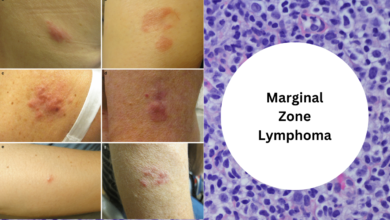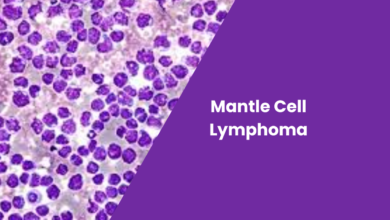
What is T-Cell Lymphoma?
T-cell lymphomas are a diverse group of non-Hodgkin lymphomas that originate from T cells, a type of white blood cell. These lymphomas can develop in various parts of the body, including the lymph nodes, skin, and internal organs.
Types of T-Cell Lymphomas
There are several types of T-cell lymphomas, each with its own characteristics and treatment approaches. Some common types include:
• Peripheral T-cell lymphoma: A heterogeneous group of lymphomas that can affect various organs.
• Cutaneous T-cell lymphoma: A group of lymphomas that primarily affects the skin.
• Adult T-cell leukemia-lymphoma (ATL): A rare and aggressive type of T-cell lymphoma associated with HTLV-1 infection.
Symptoms of T-Cell Lymphoma
Symptoms of T-cell lymphoma can vary depending on the specific type and location of the cancer. Common symptoms include:
• Swollen lymph nodes
• Skin lesions or rashes
• Persistent cough
• Shortness of breath
• Fever
• Night sweats
• Weight loss
• Fatigue
Causes of T-Cell Lymphoma
The exact causes of T-cell lymphoma are not fully understood. However, certain factors may increase the risk, such as:
• Viral infections: Infection with human T-cell lymphotropic virus (HTLV-1) is a major risk factor for certain types of T-cell lymphoma.
• Weakened immune system: Conditions like HIV/AIDS can weaken the immune system and increase the risk of lymphoma.
• Genetic factors: Certain genetic mutations may increase susceptibility to T-cell lymphoma.
Who Can Suffer from T-Cell Lymphoma?
T-cell lymphoma can affect people of all ages, but it’s more common in adults.
Diagnostic Tests for T-Cell Lymphoma
To diagnose T-cell lymphoma, a doctor may use a combination of tests, including:
• Physical exam: To check for swollen lymph nodes and other abnormalities.
• Blood tests: To check for abnormalities in the blood cells.
• Biopsy: A tissue sample is removed from a swollen lymph node or other affected tissue and examined under a microscope.
• Imaging tests: CT scans, MRIs, and PET scans can help determine the extent of the cancer.
Stages of T-Cell Lymphoma
The staging of T-cell lymphoma varies depending on the specific type and the extent of the disease. The Ann Arbor staging system is often used to stage lymphomas.
Treatment of T-Cell Lymphoma
The treatment for T-cell lymphoma depends on the specific type, stage, and overall health of the patient. Common treatment options include:
• Chemotherapy: To kill cancer cells throughout the body.
• Radiation therapy: To kill cancer cells in specific areas.
• Immunotherapy: To boost the body’s immune system to fight cancer cells.
• Stem cell transplantation: To replace damaged bone marrow with healthy stem cells.
Diet and T-Cell Lymphoma Prevention
While a healthy diet cannot directly prevent T-cell lymphoma, it can support overall health and strengthen the immune system. Here are some general dietary recommendations:
• A balanced diet: A diet rich in fruits, vegetables, and whole grains can help.
• Limit processed foods and sugary drinks: These can contribute to weight gain and other health problems.
• Maintain a healthy weight: Obesity is linked to an increased risk of certain cancers.
Please note: Early detection and timely treatment are crucial for a better prognosis. If you experience any symptoms of T-cell lymphoma, consult a healthcare professional immediately.
Overall Survival Rate of T-Cell Lymphomas
The overall survival rate for T-cell lymphomas varies significantly depending on the specific type, stage of the disease, and the patient’s overall health. While advancements in treatment have improved outcomes for some types, others remain challenging to treat.
Doctor to Consult
A hematologist-oncologist is the best doctor to consult for T-cell lymphomas.
Diseases Associated with T-Cell Lymphomas
T-cell lymphomas are often associated with viral infections, particularly:
• Human T-cell lymphotropic virus 1 (HTLV-1)
How to Prevent T-Cell Lymphomas
While there’s no guaranteed way to prevent T-cell lymphomas, maintaining a healthy lifestyle can reduce the risk of certain factors that may contribute to the disease:
• Limit exposure to radiation and certain chemicals: Exposure to these substances can increase the risk of certain types of cancer.
• Maintain a healthy weight: Obesity is linked to an increased risk of certain cancers.
• Regular check-ups: Regular check-ups can help detect any abnormalities early on.
• Healthy lifestyle: A healthy lifestyle, including a balanced diet and regular exercise, can help boost the immune system.





